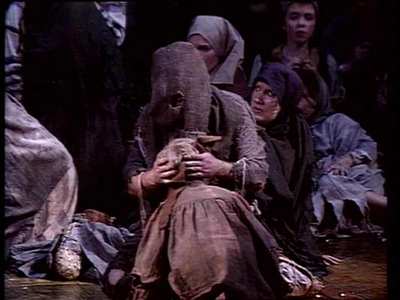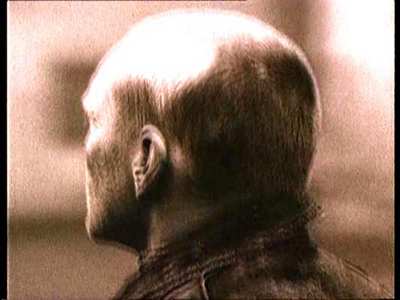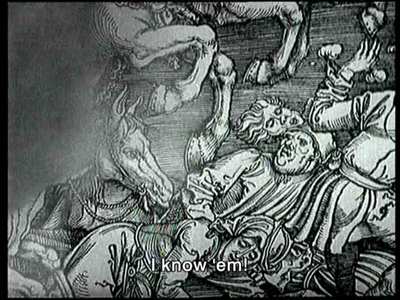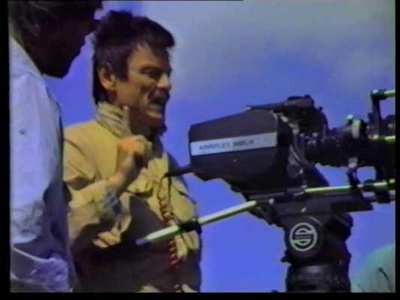The Andrei Tarkovsky Companion
Introduction
Andrei Tarkovsky was one of the most influential and individual Russian film makers, who was himself deeply influenced by Bergman and Antonioni. If he had not died so tragically at the age of 54, then he would certainly have enjoyed the same standing as the other two greats, both of whom, sadly, died a month or so ago.

Video
The quality of the video varies enormously, due to the age of the stock, and perhaps some neglect, but everything is quite clear on this DVD.

Audio
Sound also varies quite substantially, with the worst quality being found in `Moscow Elegy`, but again, everything is clear enough and this DVD was never going to be prepared for demonstrating the medium.

Features
English subtitles, but nothing else.

Conclusion
The three documentaries featured on this disc are a perfect accompaniment to the series of Tarkovsky`s seven major features already released by Artificial Eye. `Tempo di viaggio` may also be found as the main extra on the `Nostalgia` disc, but this version is apparently presented with `new and improved subtitles`. I`m not able to comment on that as `Nostalgia` is the only Tarkovsky film I haven`t added to my collection.
I decided to watch the three films in chronological order rather than how they are presented on the discs to give myself a sense of how Tarkovsky`s life and work affected those who knew him before his death, and for around 15 years after.
`Tempo di Viaggio` (1983) (translated as `Time of a Journey` on the DVD sleeve, but as `Travelling Time` in the film itself) was co-directed by Tarkovsky himself before he knew he was ill. It takes the form of apparently random conversations between himself and Tonino Guerra, squeezed between some ravishing shots of some of the Southern Italian locations they used for `Nostalgia`.
In this film, he admits that he didn`t really like `Solaris`, or indeed that he wasn`t too enamoured with the tag of `science fiction director`. He deals with humanity in different situations and just because these situations haven`t yet occurred it doesn`t make them fiction.
His affection for his two main influences is also shown, saying that before he made a film he always watched some Bergman, and when Guerra receives a call from Michelangelo (Antonioni) while the filming is going on, Tarkovsky calls across the room passing on his thanks for everything he has done for him. Ok, perhaps this is a little staged but the honesty shines through.
`Moscow Elegy` (1987) is a late-Soviet tribute to Tarkovsky from Alexander Sokurov (Russian Ark). Shot mostly in black & white, it contains several scenes from `Tempo di Viaggio` and is the most disappointing of the three films available.
An interesting aspect of this documentary is the difference in the English translation of `Viaggio`, especially that for the poem read out by Guerra. Sokurov says that `verse cannot be translated` but it certainly seems to have been here.
More successful aspects of this film show Tarkovsky to be deeply involved in every part of the film-making process (mostly from the set of `The Sacrifice`) but these scenes should really have been edited more carefully.
Historical footage of both Bresznev`s and Tarkovsky`s funeral are fascinating. Bresznev had a huge military cavalcade, Tarkovsky had Rostropovitch playing his cello on the steps of the Orthodox cathedral in Paris. This was a real tribute.
Chris Marker`s film, `One day in the life of Andrei Arsenevitch` is the most successful of the three. It uses many of the same scenes found in the first two films, but is a more personal film, and allows us to understand the tragedy surrounding Tarkovsky`s last years, not just because of his illness, but how it affected his family.
His son tells of when the Russian authorities had come to tell the family of the seriousness of his illness, but he thought they had come to kill them. The commentary says that this `is an absurd idea now`, but of course, recent events prove that some things may never change.
We see more detailed work on `The Sacrifice` (with some great shots of Bergman`s favourite cinematographer, Sven Nykvist) and very moving scenes with the family together in Paris for the first time in years. Tarkovsky is still intent on editing the film to his demanding standards even though he is lying on a bed, dying in agony from lung cancer. When he finished filming `The Sacrifice` he didn`t know he was ill.
It took me a while to appreciate Tarkovsky`s work having first seen `Solaris` when I was very young, but there was always an interest to get back to that, and his other work when I noticed the Artificial Eye DVD sets.
As I said at the start, this selection of documentaries is the perfect accompaniment to an already excellent series, but perhaps only of real interest to those who know and admire Tarkovsky`s films.
Your Opinions and Comments
Be the first to post a comment!